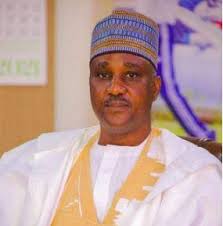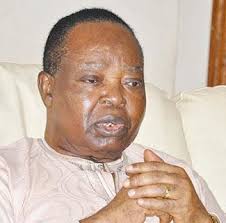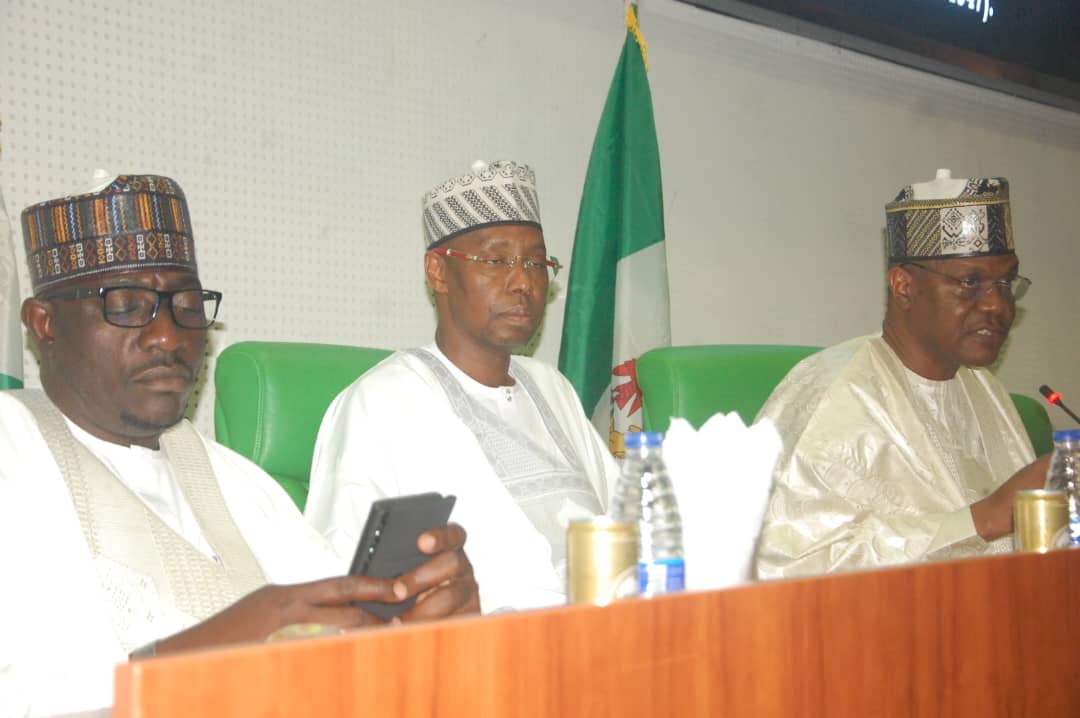***Lauds achievements at NEXIM Bank
The Senate has acknowledged the achievements of the Executive Director (Business Development) of Nigerian Export and Import Bank (NEXIM), Hon. Stella Okotete, in growing the non oil exports and business fortunes of the Bank.
The commendation came after the Senator representing Delta Central, Senator Ede Dafinone moved a motion at the ongoing ministerial screening exercise, urging his colleagues to allow Ms. Okotete take a bow and leave.

Hon. Okotete, former National Women Leader of the ruling All Progressive Congress (APC) and currently serving as ED Business Development at NEXIM Bank, was President Bola Tinubu’s ministerial nominee from Delta State.
Senator Dafinone, while moving the motion, said he had had opportunity of working with Ms. Okotete during his one year stay as Non-Executive Director with NEXIM, adding that the nominee was the engine room of the international reputable bank.
“What the nominee did not mention was that, her position as the Executive Director of Business Development Unit, means she was at the engine room of the bank. The Business Development Unit, is the operational department of the NEXIM Bank.
“So, she was in charge of the operations of the Bank and in that capacity, she was able to grow the balance sheet of the Bank and she has done exceptionally well.
“I want to add also, that as a young woman, she has also favoured the youth and women in her policies at the bank, aside the policies she had done at home, encouraging young people in various departments and empowerment programs.
“She has also been instrumental in growing non oil exports and as at today, the non oil exports are the key focus of this administration, as we protect the need to grow our economy in the background of dwindling oil reserves and in move globally away from foisting fuel, to a more sustainable forms of energy.
“My Colleagues said she has distinguished herself already, what I need to add is that, I speak for my 2 Colleagues from Delta State who are both fully in support of the nominee, and to ask Distinguished Members, if the nominee from Delta State, could please be recognized for her good work in NEXIM Bank, with the background that, she has served one complete term at NEXIM Bank and that the term has been renewed about a year ago, which shows she has distinguished herself at the Bank. With that Mr. President, I urge that Distinguished Members, do ask the nominee from Delta State to please take a bow”, Senator Dafinone told his Colleagues.
President of the Senate, Senator Godswill Akpabio, who presided over the ministerial screening, also attested to the role of Ms. Okotete in women and youth development as the Women Leader of the ruling party, APC.
He said, “honestly, when she mentioned that she was a women leader of the greatest party in Africa, I just remembered that we are all from political parties and in normal circumstances, the party is supreme”.
Akpabio also went further to pose the question for the nominee to take a bow and the response was in affirmative
Earlier, while giving a short profile of herself, the nominee, who was born in 1984, took the Senate through the journey of her career and achievements recorded, especially in women and youth development, as well as her exploits at the NEXIM Bank.
Her words:
“The immediate past President of the Federal Republic of Nigeria, President Muhammad Buhari, in 2017, found me worthy and appointed me, in line with the Act of Export and Import Bank, sections 11, 8 and 14 , as Executive Director of Nigerian Export-Import Bank (NEXIM Bank), in charge of Business Development.
“The functions of the ED Business Development of the Bank, which I still hold till date, is to drive the business directorate of the Bank, to create quality risk assets and to also provide funding for exporters in the non-oil sector.
“When we resumed in 2017, we met a balance sheet size of N67bn. We had grown it to N256bn by 2022, when our tenure got renewed. We also met a bank that was already recording loses, year-in, year-out for 3 years. As at 2016, the bank had recorded over N6bn losses. Today, the Nigerian Export and Import Bank is standing shoulder-to-shoulder with other global export banks and profitably as one of the leading export credit institutions in Africa.
“I was also the women representative, popularly known as the Women leader of the All Progressive Congress (APC) Caretaker Committee in 2020.
“As Women Leader of the ruling All Progressive Congress at that time, I was able to bring to bear, quality representation to our women and we established new policy that helped shaped visibility for our women across board.
“One of it is the Progressive Women Academy, which was approved by the Apple Store and Google Store. It is an online academy where women can learn various self skills to make themselves not just visible in the business space but also in politics. I also understood, being a very young politician, that there was need to build bridges across the older women in politics and the younger ones, and I established the Progressive Young Women’s Forum, which was also a platform to groom future female Leaders and mentor them.
“I’m proud to say today that I have women who were part of my mentes, serving as Commissioners, elected as House of Assembly Members and also as Councilors and some of them are Special Advisers and Special Assistants currently at various state levels.
“I also created the lobby group of the APC Women and we were able to garvanise stakeholders to accept the responsibility to push for more visibility for our women. Based on that, when we did the review of the APC constitution, we were able to accomodate another seat for a woman in the NWC. Today, that’s the only party in Africa that gives 2 seats – Women Leader and Deputy Women Leader seats in the NWC.
“By the grace of God, I was also able to influence such platforms for women across the party structures at the state, local government and senatorial districts”.


